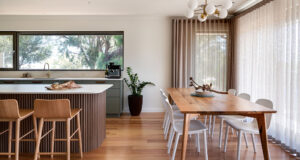The Wye River district, located between Lorne and Apollo Bay along the stunning Great Ocean Road, has long been known for its tranquil coastal beauty and community, and provided the perfect spot for David Moyle, homeowner and Director of BCM Homes, to build his dream family holiday home called Horizon.
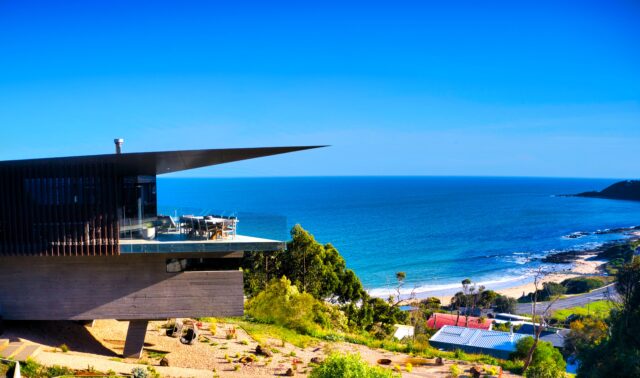
With a rugged and bushy mountain backdrop to one side and the open expanse of the Southern Ocean on the other, the design needed to blend creativity and sustainability with a focus on the natural surroundings.
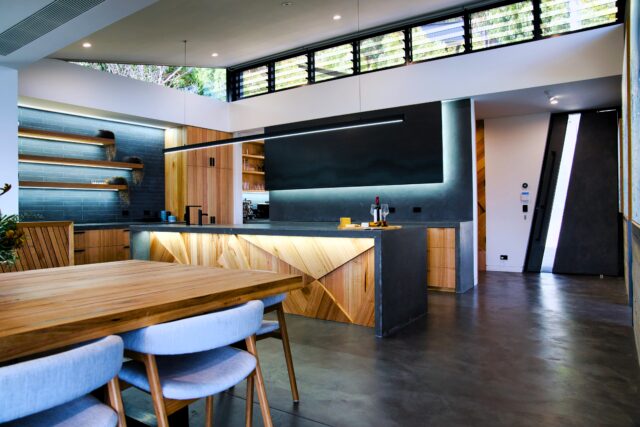

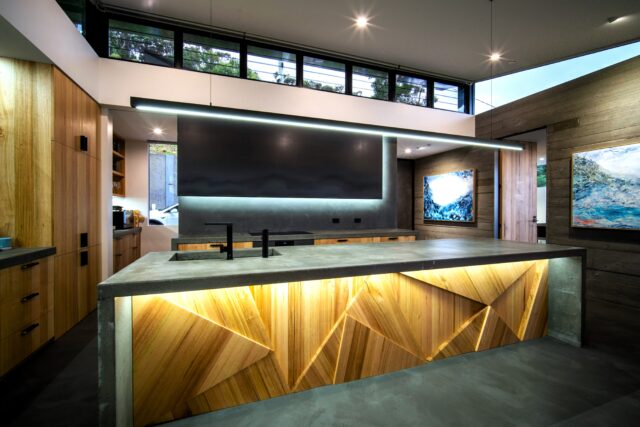

Designed by Crosier Scott Architects, and built by BCM Homes, the house recently won the highest residential building award bestowed each year, the 2024 HIA-CSR Australian Home of the Year. Working with Crosier Scott Architects, trusted collaborators for over 20 years, David gave the team the option to “design it as challenging as you like, we’ll handle the construction.”
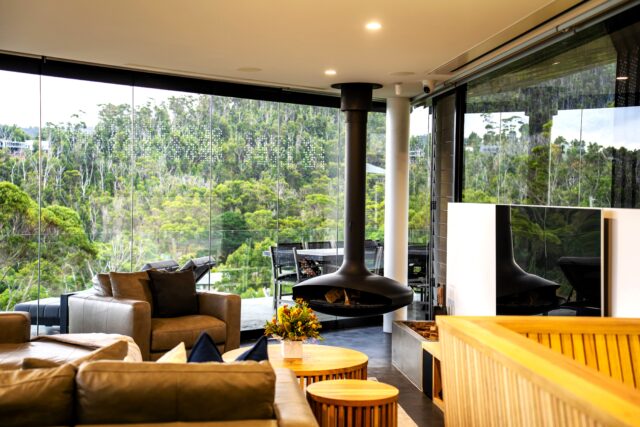

The result is nothing short of stunning. With an overarching philosophy of balancing aesthetic and environmental response, the home is suspended on the water’s edge of an unbelievably steep slope, moulded to the landscape. The low maintenance clad exterior is ideal to withstand the coastal setting. Inside, burnished concrete floors, solid timber, and high-end finishes complete this sophisticated build. Integral to David’s vision is the commitment to sustainability and energy efficiency, a cornerstone of modern home design.
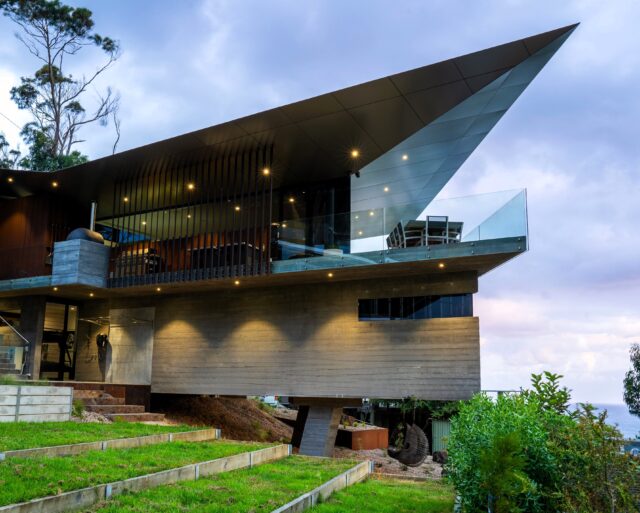

“Winning a prestigious national-level award is something I’m extremely proud of,” says David. The journey to build this stunning coastal retreat began over a decade ago. The location was chosen based on its natural beauty and suitability for family get-togethers. “We live in regional Victoria in Ballarat, and we always wanted a holiday home along the coast.”
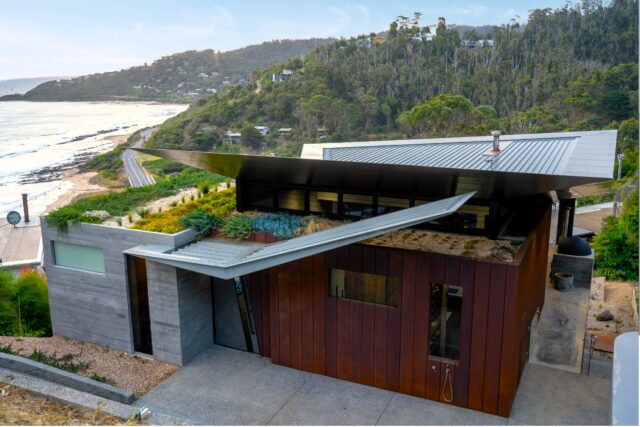

The house is an oasis for David and his family, allowing them to unwind and escape the hustle of daily life. “The project is one that we’ve built for ourselves, so it’s our own family holiday home,” David says. This personal touch is visible in every detail of the home, from its location, design, to the materials used.
Due to the sloping site, a bold cantilevered design was selected that not only enhanced the house’s overall appeal but also allowed for stunning ocean views. The two-storey, 326-square-metre house is an engineering feat, with meticulous detail and execution and extensive integrated technology, featuring four bedrooms, three bathrooms, and an open-plan living area and kitchen with premium appliances. There’s also a huge rumpus room and games area providing plenty of space for relaxation and entertaining, as well as a 600-bottle wine cellar. The design incorporates triangular shapes and straight lines both externally and internally, which fits Crosier Scott Architects’ design approach. “We wanted something striking and concrete was the perfect material to create a structure that’s both beautiful and resilient,” says David.
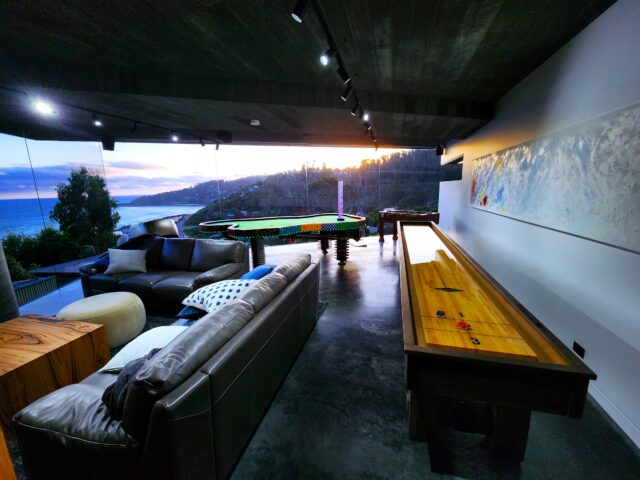

The construction process began with extensive earthworks, which involved removing 1,800 cubic metres of soil and transporting it 25km to nearby farmland. The house has foundations that penetrate 7m deep into basalt rock to keep it stable. Its location in a BAL 40 designated fire zone made fire safety a top priority in the design and construction. “All the glazing on the site is 12mm thick toughened glass to meet fire safety requirements,” David explains.
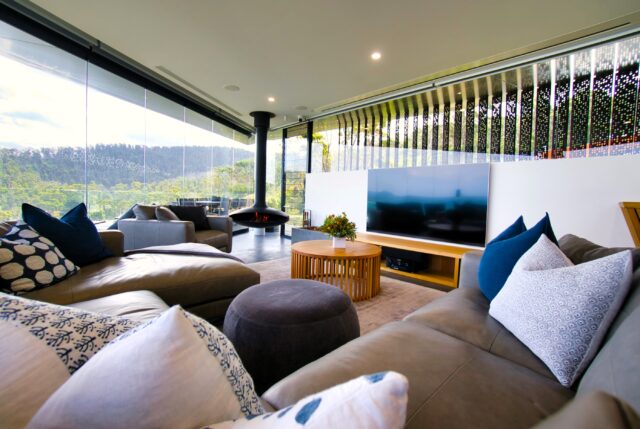

The location of the site made everything a little more complicated. The only access was via a narrow, dead-end road and 103 concrete trucks had to negotiate that road during construction. “Collectively, the trucks reversed 25km to get to the site,” David says. The project used 1,000 tonnes of concrete, delivered in 31 pours, with the nearest concrete plant two hours away.
The home’s internal design includes feature board-form concrete walls with a wood grain pattern, rich timber panelling, and large glass panel doors that take advantage of the views – the largest is 2.7 by 5m, and leads to outside seating and entertaining areas. Integral to the home’s design and functionality is CSR Gyprock plasterboard, which was extensively used for its acoustic properties and enhanced resilience, ensuring the walls withstand the daily demands of a lively family holiday home. “Strength and longevity were important considerations when choosing the right materials. We used Gyprock Standard 13mm, a commercial plasterboard to deliver a more robust, acoustically sound lining, reducing sound travelling across the floors, transforming the space into a serene environment,” says David.
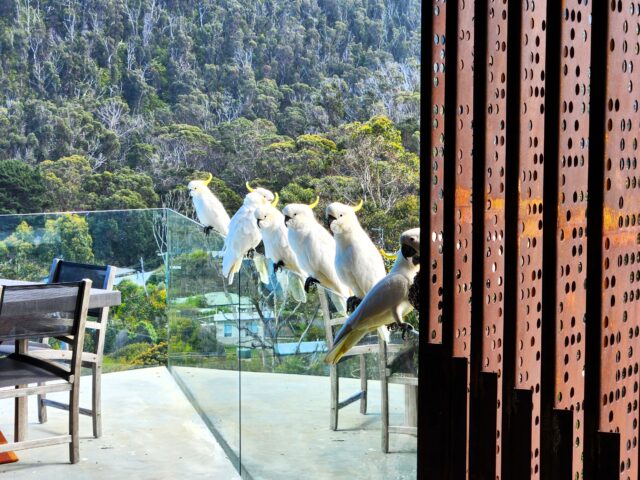

Energy efficiency and comfort were major considerations in the design. The orientation of the home maximises natural light while reducing the need for artificial heating and cooling. The home features in-slab hydronic heating and reverse-cycle air-conditioning, but careful design means it is comfortable all year while using little energy.
A key aspect of good design lies in the materials that work behind the scenes to ensure the home not only looks but also feels serene and inviting. Among these, CSR Bradford’s Polymax insulation plays an essential role in delivering optimal thermal and acoustic performance. Installed between the concrete flooring, the insulation not only enhances the home’s energy efficiency but also contributes significantly to reducing noise transfer, creating a quieter and more peaceful living environment between the different levels. In addition to Polymax, Bradford Gold R2.5 Acoustic Batts were used between the walls and in the ceilings, further enhancing soundproofing and maintaining the home’s serene atmosphere.
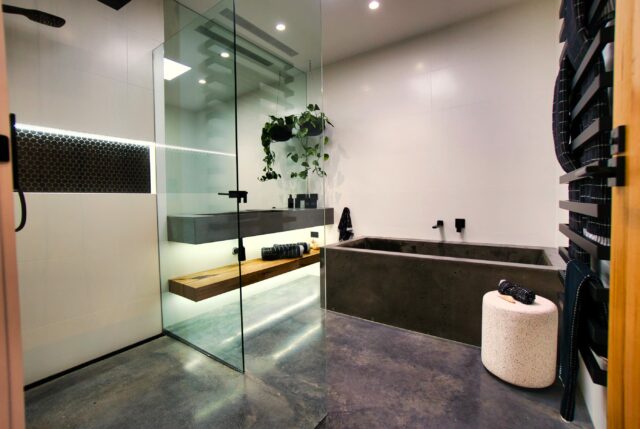

While generous, the house still manages to feel relaxed to accommodate family living. To counterbalance the sharp angles of the design, furnishings are textured, generous and layered, offering cosy areas for family and friends to enjoy time together. A colour palette of strong earthy tones complimented with touches of blue, charcoal and burnt orange, in the living spaces and bedrooms, brings the outside in, making the house feel like it’s part of the landscape.
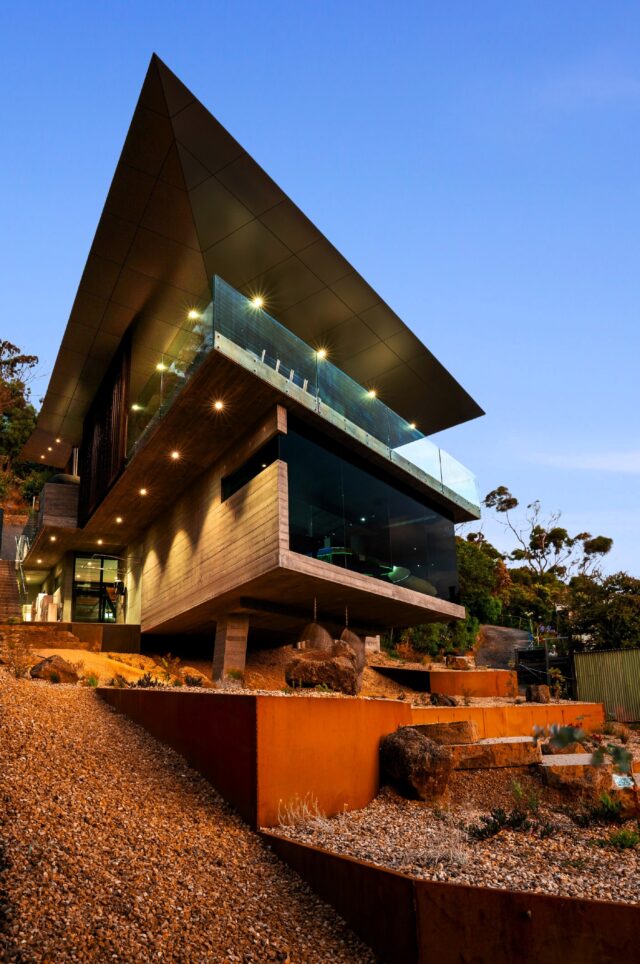

Horizon is a stunning and stylish house that still manages to convey an easy going appeal, synonymous to the idea of relaxed Australian coastal living. David concludes by highlighting the project’s collaborative approach, noting that every aspect of the building process was carried out with a high level of craftsmanship. “Everyone involved went above and beyond to deliver the highest quality finish, which has led to it being an award-winning house.”
For more information on Gyprock and Bradford products.
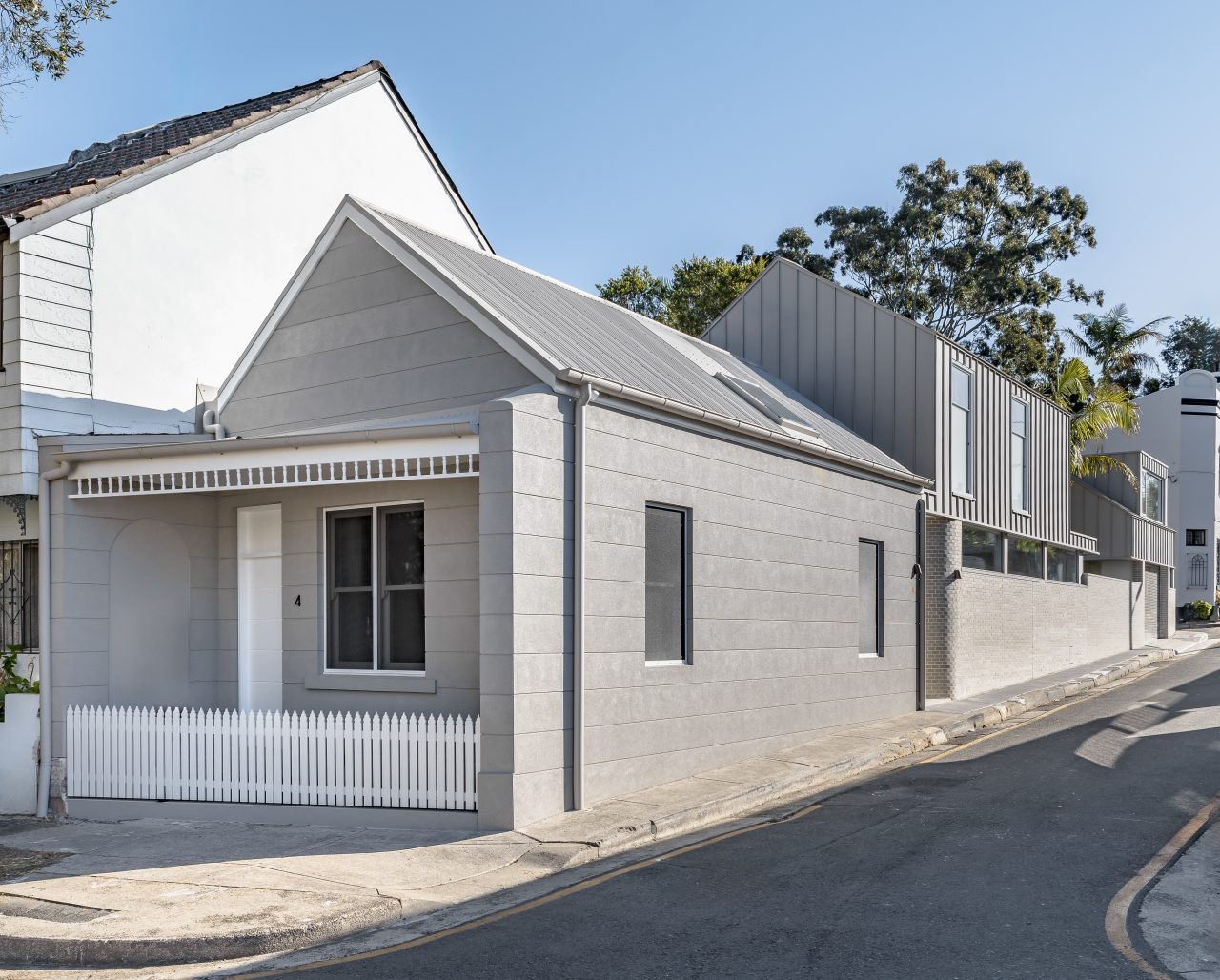

Gloomy Redfern terrace transformed and extended for young family
The owners of a run down terrace in Redfern worked closely with architects Thodey Design to transform Kate Lawrence to achieve this look.…
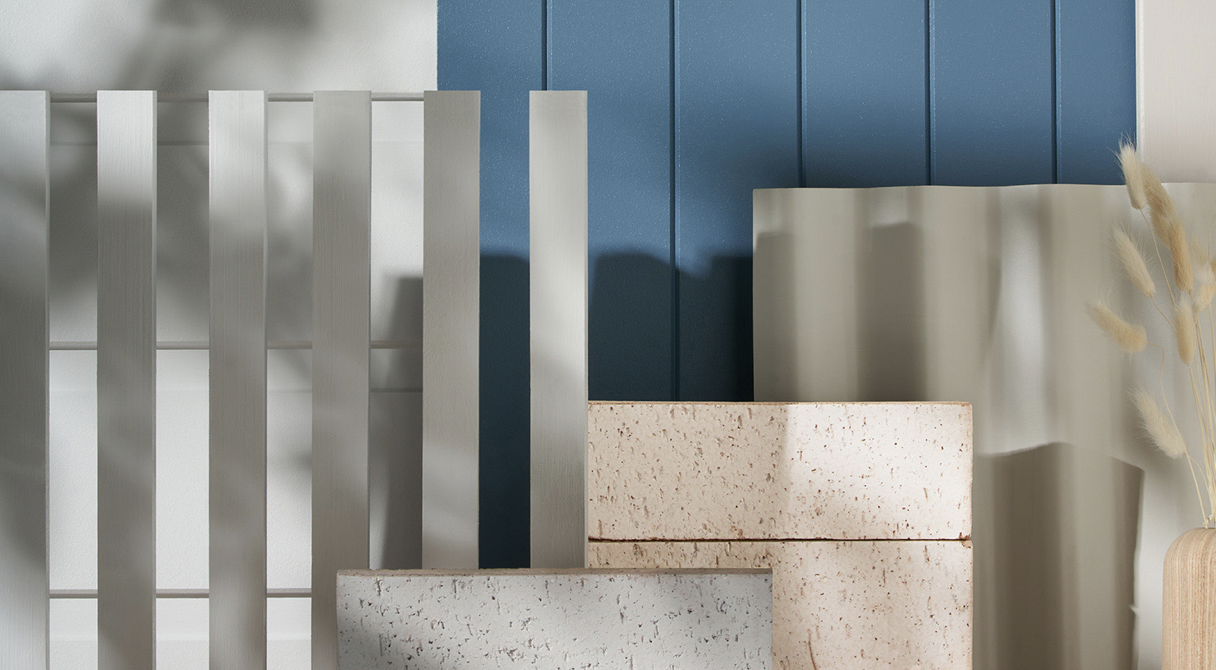

7 perfect exterior colour palettes that will inspire homeowners
Trying to pair colours on the exterior of a house is no easy task. The bricks, pavers, roofing and downpipes …

